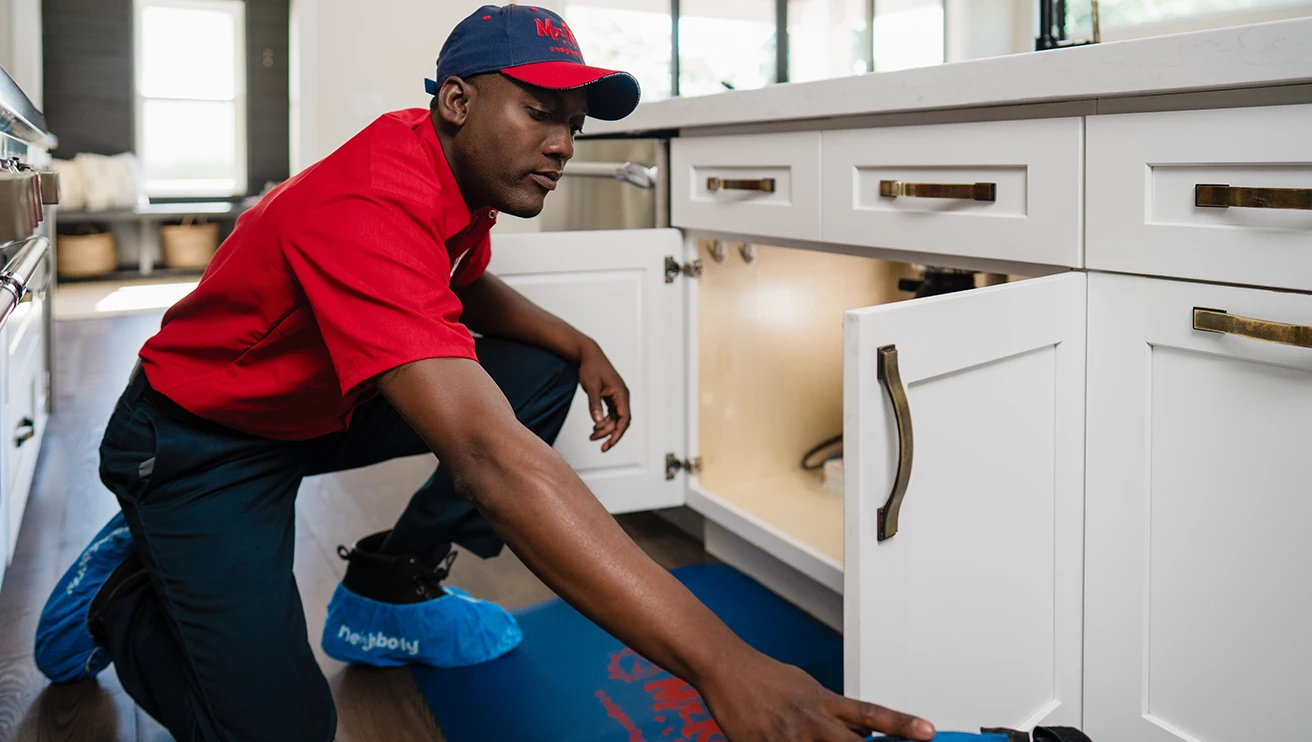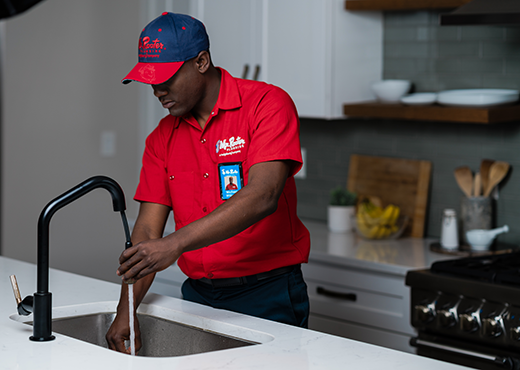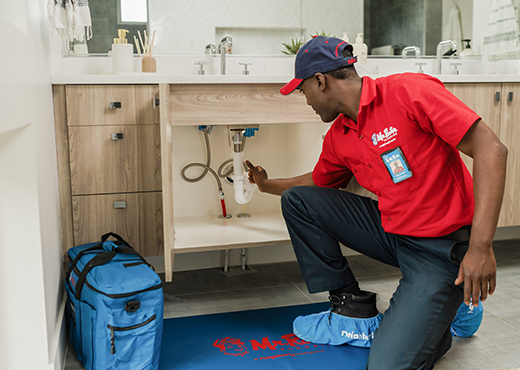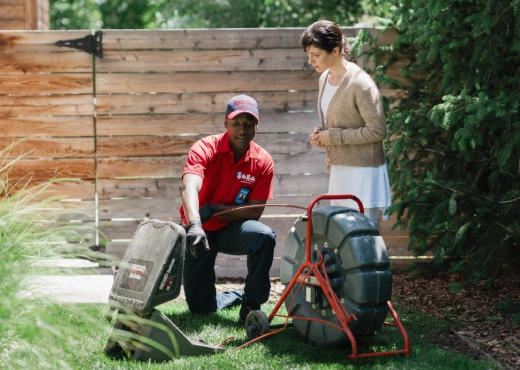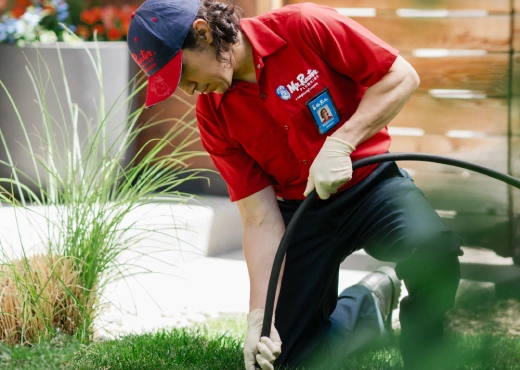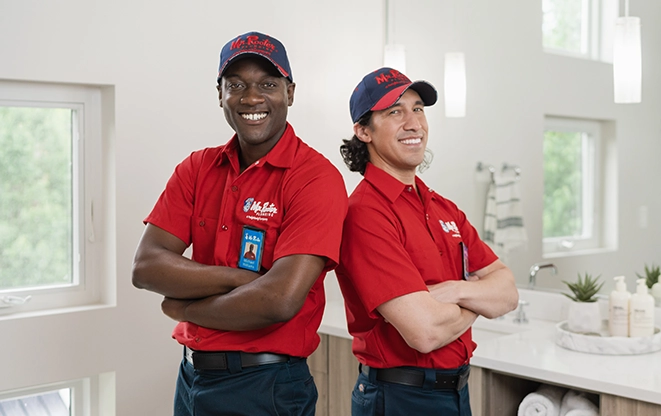Commercial floor drains are an integral part of many industrial settings. Heavy-duty drains are designed to stand up to forklift traffic in warehouses and light-duty sanitary drains work well for drainage in food preparation areas with foot traffic. Medium-duty drain grates are used in high foot traffic areas where pallet jacks and hydraulic stacking equipment may be used. Commercial floor drain installation and repair are no problem when you choose an experienced plumbing contractor who understands your business needs. Your contractor should be familiar with a variety of drain configurations in order to provide full-service commercial floor drain installations and repairs.
- Specific-area drains: Found in washrooms, showers, and locker rooms and provide overflow protection in commercial kitchens, food service/hospitality, manufacturing and factory settings, hospitals, warehouses, garages, parking lots, and more.
- Sanitary drains: Used in restaurant and commercial food preparation areas as well as chemical and pharmaceutical processing plants, hospital settings, and in other industries. Seamless, corrosion-resistant stainless steel drains are ideal to reduce bacterial accumulation and decrease the risk of contamination.
- Trench drains: Often used to meet the needs of retailers like gas stations and convenience stores serving beverages and food. They're used in amusement parks, zoos, and many other public or commercial settings to provide overflow drainage.
- Catch basins: Custom-designed as collection points for flat bottom, v-bottom or rounded trench drains.
- Floor sinks: Commonly found in food and beverage manufacturing plants and other industrial situations. They may be fully or partially covered with light, medium, or heavy perforated gratings. Optional internal flanges (flashing collars) decrease splashing from high volume and/or high flow rates.
- Deep sump drains: Designed for heavy volume applications, including continuous flow and debris-laden fluids. Sump drains are often used in dairies, meatpacking plants, food processing centers, industrial kitchens, bottling plants, and hazardous waste processing.
- Double containment drains: Work well in drainage systems exposed to intense cold and high heat. Designed to help manage condensation when used with floor sinks, trench grates and catch basin drainage systems.
Clogged Grease Traps
Preventative Maintenance
To avoid plumbing emergencies, preventative maintenance of grease traps should include the addition of an auto-injection system. These systems add natural bacteria to your trap to facilitate fat, oil, and grease (FOG) breakdown and control odors. Automatically measured and delivered to your trap, these bacteria reduce pumping by up to 50 percent. Add an auto-injection system today for an easy, cost-effective way to prevent plumbing clogs.
Grease Trap Installation
Small point-of-use units are typically installed near the fixtures they serve, such as pot sinks, rinse sinks near dishwashers, floor drains, and more. They are located in close proximity to these fixtures to prevent clogs due to FOG buildup, which is common on drain systems without grease traps. Mr. Rooter Plumbing can save your business the expense of costly emergency repairs due to these clogs by retrofitting your existing drain lines with an effective point-of-use grease trap system.
Industries served:
- Restaurants and bars
- Hotels
- Small business offices
- Hospitals
- Board and care and nursing homes
- Sports stadiums or entertainment venues
- Shopping malls
- Supermarkets, grocery stores
- Food processing plants
- Educational facilities, schools, universities
- Airports
Maintenance Prevents Drain Problems
Professional drain cleaning and inspection are essential preventive maintenance services. Regularly scheduled drain cleanings will:
- Minimize bacterial growth, decreasing the contamination potential of your drain system.
- Help prevent odors and standing water to provide a healthy, safe environment for employees, customers, and/or patients.
- Reduce unexpected repair costs and commercial drainage emergencies.
- Help ensure your business passes inspections from the health department, industry/government regulators (FDA, OSHA, etc.), or insurance agents.
- Help avoid fruit flies, and rodent or insect infestations due to standing water or bacterial buildup.
- Prevent interruption of your business and lost revenue.

